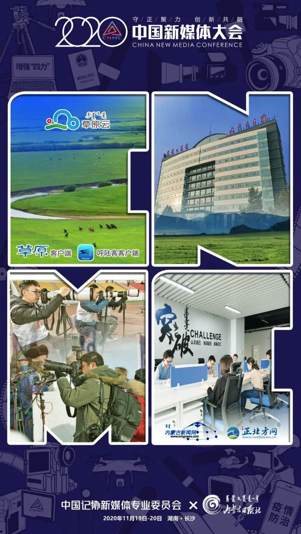CCTV drops re-airing of investigative program under pressure from National Tax Bureau
China Central Television dropped a planned re-airing of a segment on its “News Probe” investigative program Thursday night after bowing to pressure from officials at China’s National Tax Bureau, media insiders said.
The program, which initially aired Monday night, was an interview with Li Wenjuan (李文娟), a former employee of the local tax office in Anshan, a city in Liaoning province, who blew the whistle on corruption among tax officials back in 2002 and paid dearly for it. The CCTV program avoided directly tackling the issue of official corruption, and focused instead on the need to protect those who come forward with information.
In a confidential letter to national tax officials in May 2002, Li Wenjuan offered physical proof of illegal behavior by tax officials in Anshan. The letter, which Li signed with her real name, was eventually leaked to local leaders, who had her taken into “criminal detention” in late 2004 on charges of “defamation”. There was never a trial, but Li spent more than a year in detention at a “rural education” program before finally being released.
Despite CCTV’s decision not to rebroadcast, the segment was still available Friday in video and transcript formats on the state-run broadcaster’s website. [If “Page Cannot be Displayed” Click Refresh].
While highlighting the challenges posed to China’s media by political power brokering, the airing of the CCTV program shows that so-called “watchdog journalism” (under state sanction), or supervision by public opinion, is moving ahead in the country despite the atmosphere of heightened control following the January shutdown of Freezing Point, a supplement of China Youth Daily newspaper.
What follows is a partial translation of the Chinese transcript available at CCTV.com:
The right to inform about illegal behavior is a right that belongs to every citizen, a right accorded by the Chinese Constitution. But ensuring someone is protected after they have informed, that the party informed against does not seek revenge against them, this requires a full-fledged informant protection system. Today News Probe’s featured personality is informant Li Wenjuan, who was previously an employee in the local tax office of Anshan City in Liaoning province. While carrying out her work registering tax revenues she discovered that some within the local tax office were aiding local tax dodging and doing other kinds of illegal behavior. After hesitating for five months, Li Wenjuan passed her information with full names to the National Tax Bureau. From this time forward, she experienced life changes she could never have anticipated.
Reporter: If you had known everything you’ve now seen and experienced, would you still have informed? What would you have chosen?
Li Wenjuan: I wouldn’t inform, because after you inform the country has a hard time ensuring you’re protected and that your not singled out for revenge.
Reporter: So you mean that as an informant you don’t get the protection you need?
Li Wenjuan: Yes.
Reporter: And before you informed you had no idea how things worked, is that right?
Li Wenjuan: I had no idea.
Explanation: Li Wenjuan is 43 years old, college-educated. She started working in Anshan’s tax office in 1983. In 2000 she began working in accounting section of the Anshan office of the National Tax Bureau. She was responsible for registering tax payments. In the course of her work, Li Wenjuan felt she had found some behavior in violation of national tax laws.
Li Wenjuan: I saw our workers fudging with the tax figures and giving illegal rebates, changing forecasts, etc.
Reporter: What would have been the result if you hadn’t reported this?
Li Wenjuan: If I hadn’t reported it, this kind of thing would probably have kept going on. In one month a person could get several thousand out of doctoring the tax figures.
Explanation: Anshan has always been a famous industrial city in China, home to Angang and other central and provincial-level enterprises. Typically, tax payments from these enterprises go through the Anshan tax office of the National Tax Bureau, and Li Wenjuan was in this section of the office. She used this opportunity to make copies of registers of value-added tax for enterprises, and taking this evidence Li informed the National Tax Bureau in June 2002 that illegal activities were going on at the Anshan tax office.
Li Wenjuan: At the time I thought I was giving them a way to investigate.
Reporter: Giving whom?
Li Wenjuan: Giving the investigators a way to look into the case, letting them investigate according to the methods I gave and then providing other ways. I was thinking that by doing this I could reveal this [illegal] behavior and return the losses incurred by the state.
Reporter: What made you choose to use your actual name and not hide it when you informed?
Li Wenjuan: Because I knew if you informed anonymously that basically the issue wouldn’t be taken care of. So I wanted to use my own name and take responsibility for it and then let the appropriate officials solve the problem. At the same time, I had other problems I wanted to express to them.
Explanation: Aside from this, Li Wenjuan felt that if she used her real name, officials might be able to protect her in the event her identity as the informer got out and those informed on sought retribution.
Li Wenjuan: If you keep your name secret then there’s no way for others to help you if someone tries to harm you.
Reporter: So you’re saying you though carefully about these issues before going through with it?
Li Wenjuan: I never thought at the time that it would come to this. I had faith in our supervision officials.
[Posted by David Bandurski, March 31, 4:30pm]



